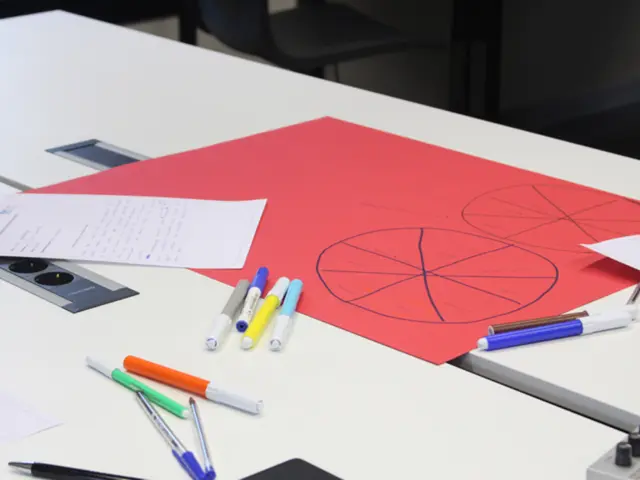Clever Tricks for Parenting in the Montessori Style That You'll Wish You'd Learned Sooner
In today's fast-paced world, the Montessori approach to parenting offers a refreshing alternative that focuses on nurturing independent, confident, and empathetic children. This educational philosophy, developed by Dr. Maria Montessori, emphasises child-led learning, a prepared environment, and fostering independence.
Montessori parenting equips children with the skills they need to navigate the challenges of the future. By encouraging children to take part in age-appropriate daily tasks, such as dressing themselves or helping with meal prep, children develop a sense of responsibility and confidence.
Outdoor activities, like collecting leaves or identifying plants, can help children develop a love for nature. Creating a small garden or a cozy, inviting reading space can foster a love for reading from a young age. For older children (6+ years), more complex tasks and responsibilities can be introduced to further cultivate autonomy and self-motivation at home.
A Montessori-inspired calm down space can support a child's emotional development by providing a safe environment for processing feelings and self-soothing. This corner should include soothing items such as soft pillows, calming books, or sensory objects like stress balls.
Integrating Montessori into your home life can complement traditional schooling. Offering easy-to-manage clothing options, setting up a Montessori Wardrobe Station, and creating different zones or activity stations for each child based on their interests and age can foster a sense of community and collaboration within the family.
To effectively incorporate Montessori principles, it is essential to provide accessible materials, keep the home environment organised, and maintain calmness and predictability in routines. Offering sensory-rich, hands-on activities and observing your child patiently to follow their interests are also crucial components of this approach.
The benefits of Montessori parenting extend far beyond childhood, preparing children for success in all areas of life. Montessori discipline focuses on teaching children self-regulation through natural consequences and respectful communication, rather than punishments or rewards.
In conclusion, Montessori parenting is a journey, not a destination. It's about making thoughtful, gradual changes that align with your family's needs and values. By focusing on fostering independence, creating a prepared environment, and integrating child-led learning, you can help your child grow into a confident, independent, and compassionate individual.
- In incorporating the Montessori approach, a key aspect is providing accessible materials, maintaining consistency through organized home environments, and ensuring a sense of calmness in everyday routines.
- Encouraging children to participate in age-appropriate daily tasks promotes a sense of responsibility, self-confidence, and independence, which are essential for child development.
- Emotional intelligence plays an important role in Montessori parenting, as creating a safe, calming corner for children can support their emotional development and self-soothing abilities.
- Besides enhancing traditional schooling, integrating Montessori principles at home can foster collaboration, community, and a love for learning, as demonstrated by offering activity stations tailored for each child's interests and age.
- Montessori discipline centers around guiding children towards self-regulation through natural consequences and respectful communication, leading to a foundation for success in all aspects of their future lives.




